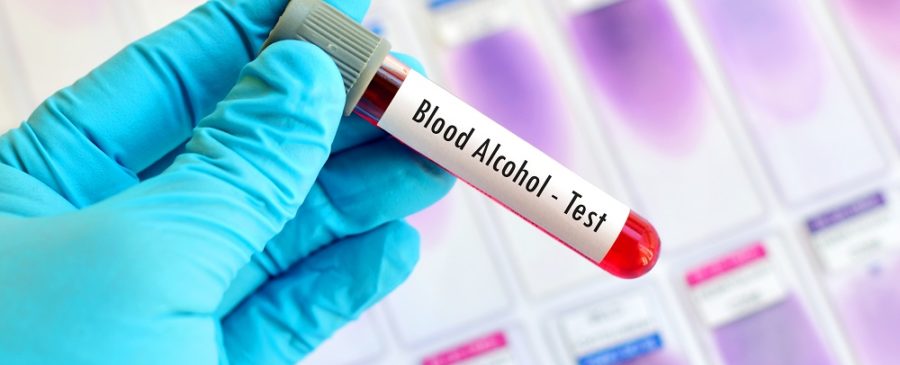
Blood Alcohol Content (BAC) is the percentage of alcohol a person has in their bloodstream. Bodily fluids like Urine and blood samples can reveal the alcohol concentration coursing through someone’s bloodstream. Also, various BAC tests exist and their results can inform any law enforcement officer whether you’ve committed a drunk driving offense or not.
Generally, several factors can affect BAC for individuals. The variables include the number of standard alcoholic beverages consumed, consumption time, and body weight. Gender, food, and medications also alter BAC readings.
It would be best to understand the technical details of alcohol content in drinks. Typically, a standard alcoholic drink could be a 12-ounce regular beer (4.5% alcohol), a 7-ounce malt liquor (7% alcohol), a 1.5-ounce shot of hard liquor (40% alcohol), 0.5 ounces of Everclear (95% alcohol), or a 5-ounce glass of wine (12% alcohol).
In the states, the federal legal limit for a BAC is 0.08%. That’s the value beyond which a person could get charged with drunk driving. However, each state’s law specifies its BAC legal limit, which generally doesn’t fall below the federal stipulation.
Besides setting their individual base BAC legal limit, many states have heavier penalties for drivers with high BAC convictions. Depending on the jurisdiction and the facts of your DUI case, you could face felony charges which may mean jail time.
If you get a conviction on your DUI charge, you risk having it on your criminal record permanently. To avoid such scenarios, your best bet is to hire a professional DUI lawyer. They are in the best position to activate every DUI legal defenses that could earn you a lower charge.
What Is Referred to as a High BAC Level?

Definitions for a high BAC vary across states and jurisdictions. However, a typically high BAC level lies between 0.15%-0.20%. If you got charged with DUI, the penalties could get more extensive if the court establishes that you’ve got a high BAC. What’s worse, a higher BAC count would mean a heavier punishment.
The logic is that the higher a person’s BAC levels get, the more intoxicated he becomes. A blood alcohol content score between 0 to 0.05 will probably cause mild impairment, in which the person’s speech and coordination may be slightly off. In some cases, sleepiness sets in at the latter stages.
For BAC levels between 0.06 to 0.15, the person may begin to experience increased impairment, including a significant drop in alertness. Between 0.156 and 0.30, memory loss and signs of alcohol poisoning like vomiting will begin to manifest.
Naturally, an individual’s BAC level becomes more life-threatening the higher it becomes. You just understand that the threat is not just for the individual alone: they endanger everyone else on the road.
You have a higher chance of getting off a DUI charge with light penalties the lower your BAC levels are after a test. In some cases, a legal representative may not be necessary if the scores are low enough. Conversely, a high blood alcohol content only serves as proof that you may have driven while intoxicated.
Blood Alcohol Content by State Limit
As stated earlier, states have their discrete DUI. You might want to take caution and know your resident state’s BAC limits before driving your vehicle after a drink. Also, it bears mentioning that everyone has a different alcohol tolerance limit. That means your blood alcohol concentration may be higher than your state’s legal limit even when you don’t feel the effects physically.
Below is a detailed table showing BAC value limits for each state:
| State | “Per Se” BAC Level | “Zero Tolerance” BAC Level | Enhanced Penalty BAC Level | “Implied Consent” Law |
| Alabama | 0.08 | 0.02 | * | Yes |
| Alaska | 0.08 | 0.00 | 0.15 | Yes |
| Arizona | 0.08 | 0.00 | 0.15 | Yes |
| Arkansas | 0.08 | 0.00 | 0.15 | Yes |
| California | 0.02 | 0.08 | 0.16 | Yes |
| Colorado | 0.08 | 0.02 | 0.17 | Yes |
| Connecticut | 0.08 | 0.02 | 0.16 | Yes |
| Delaware | 0.08 | 0.02 | 0.15 | Yes |
| Florida | 0.08 | 0.02 | 0.15 | Yes |
| Georgia | 0.08 | 0.02 | 0.15 | Yes |
| Hawaii | 0.08 | 0.02 | 0.15 | Yes |
| Idaho | 0.08 | 0.02 | 0.20 | Yes |
| Illinois | 0.08 | 0.02 | 0.26 | Yes |
| Indiana | 0.08 | 0.02 | 0.15 | Yes |
| Iowa | 0.08 | 0.02 | 0.15 | Yes |
| Kansas | 0.08 | 0.02 | 0.15 | Yes |
| Kentucky | 0.08 | 0.02 | 0.18 | Yes |
| Louisiana | 0.08 | 0.02 | 0.15 | Yes |
| Maine | 0.08 | 0.00 | 0.15 | Yes |
| Maryland | 0.08 | 0.02 | * | Yes |
| Massachusetts | 0.08 | 0.02 | 0.20 | Yes |
| Michigan | 0.08 | 0.02 | 0.17 | Yes |
| Minnesota | 0.08 | 0.00 | 0.16 | Yes |
| Mississippi | 0.08 | 0.02 | * | Yes |
| Missouri | 0.08 | 0.02 | 0.15 | Yes |
| Montana | 0.08 | 0.02 | * | Yes |
| Nebraska | 0.08 | 0.02 | 0.15 | Yes |
| Nevada | 0.08 | 0.02 | 0.18 | Yes |
| New Hampshire | 0.08 | 0.02 | 0.18 | Yes |
| New jersey | 0.08 | 0.01 | 0.10 | Yes |
| New Mexico | 0.08 | 0.02 | 0.16 | Yes |
| New York | 0.08 | 0.02 | 0.18 | Yes |
| North Carolina | 0.08 | 0.00 | 0.15 | Yes |
| North Dakota | 0.08 | 0.02 | 0.18 | Yes |
| Ohio | 0.08 | 0.02 | 0.18 | Yes |
| Oklahoma | 0.08 | 0.02 | 0.17 | Yes |
| Oregon | 0.08 | 0.00 | * | Yes |
| Pennsylvania | 0.08 | 0.02 | 0.16 | Yes |
| Rhode island | 0.08 | 0.02 | 0.15 | Yes |
| South Carolina | 0.08 | 0.02 | 0.16 | Yes |
| South Dakota | 0.08 | 0.02 | 0.17 | Yes |
| Tennessee | 0.08 | 0.02 | 0.20 | Yes |
| Texas | 0.08 | 0.02 | 0.15 | Yes |
| Utah | 0.05 | 0.02 | 0.16 | Yes |
| Vermont | 0.08 | 0.02 | * | Yes |
| Virginia | 0.08 | 0.02 | 0.15 | Yes |
| Washington | 0.08 | 0.00 | 0.15 | Yes |
| West Virginia | 0.08 | 0.02 | 0.15 | Yes |
| Wisconsin | 0.08 | 0.02 | 0.15 | Yes |
| Wyoming | 0.08 | 0.02 | 0.15 | Yes |
Note:
- “Per se BAC” is the level of blood alcohol content above which you are intoxicated under the law.
- “Zero tolerance BAC” is the level of intoxication considered illegal for under-21 drivers.
- “Enhanced penalty BAC” is the BAC at which an individual will face more serious penalties.
- Finally, the court deems the drivers to have given their consent to be tested in implied consent law.
From the table above, you’d notice that all the jurisdictions have similar BAC limits. However, they get to interpret them differently under their DUI laws. Also, zero-tolerance BAC laws exist in some states to curb drunk driving for U21 drivers.
Penalties for Drivers Facing DUI Charges

Expectedly, the penalty for drunk driving charges varies across the states. As a first offense, some jurisdictions recommend stiff penalties for DUI while others prefer to call it a civil infraction. For example, first-time offenders will face mandatory jail time in Tennessee, Georgia, and Arizona. On the other hand, there is no such requirement in states like Connecticut, California, and Indiana.
Furthermore, a first-offense drunk driving only warrants a ticket in Wisconsin. Mississippi also allows drinking and driving as long as the driver’s BAC is below 0.08%.
However, the general penalties you can expect for drunk driving in most states include:
- Fines and fees
- Suspension or loss of driver’s license
- Defense driving classes
- Reduced driving privileges
- Drug or alcohol treatment
- Increased insurance cost
- Ignition interlock device installed on your motor vehicles
- Some hours of community service
- Jail sentence
Note that drivers with high BAC levels could get a stiffer sentence, depending on the court’s discretion.
Should You Hire a DUI Defense Attorney if You’re Accused of Committing a High BAC Offense?
Although DUI laws vary from state to state, getting a conviction can negatively affect your life. You may have to face license suspension and pay fines. Worse, the defendant may serve a jail term and spend thousands of dollars on legal fees and driver reeducation charges.
Therefore, it’s pertinent that you employ the services of a competent DUI lawyer to provide legal representation. They are in the position to secure an acquittal or a lesser charge for you.
Inadequate representation in court would almost certainly get you a DUI conviction. You may choose to defend yourself or have the court assign an attorney to you. However, you’d be leaving much to chance with either of the options.
An excellent DUI lawyer would apply relevant criminal defense to the case and give you an accurate insight into your chances of getting off the rap. Some attorneys offer a free initial consultation, but it’s best to check with them even when you have to pay.
FAQs
-
What Will Happen to My Driver’s License if I’m Convicted of a High BAC Offense?
Depending on your state and the number of times of committing the offense, you will most likely have your driver’s license suspended or revoked. However, you may be eligible to apply for a restricted driver’s license within some months afterward.
-
After Being Convicted of a High BAC Offense, When Will I be Eligible for My Full Driving Privileges?
After you have been convicted of a high DUI offense, you will only be eligible for your full driving privileges after you have served all the administered penalties and paid your reinstatement fee.
